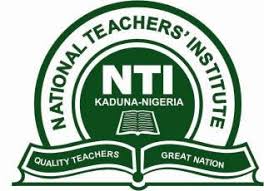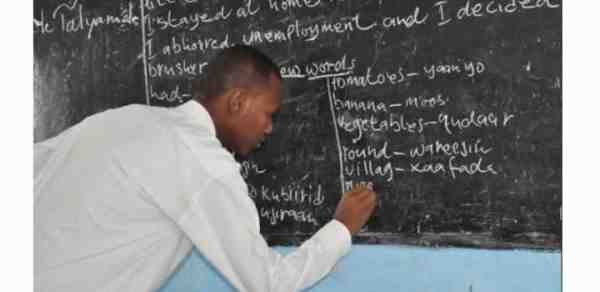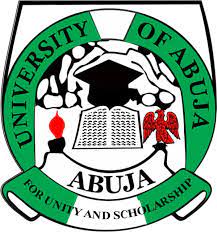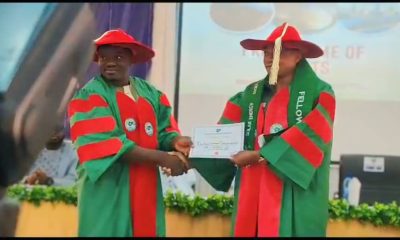Education
UNICEF Reveals 226,000 Grave Violations Against Children

By Evelyn Terseer, Abuja.
Between 2005 and 2020, the United Nations verified over 266,000 grave violations against children committed by parties to conflict in more than 30 conflict situations across Africa, Asia, the Middle East and Latin America,
According to UNICEF, this figure is a fraction of the violations believed to have occurred, as access and security constraints, among others, and the shame, pain, and fear that child and family survivors suffer often hamper the reporting, documentation and verification of grave violations against children in situations of armed conflict.
West and Central Africa is the region with the second highest number of verified violations since 2005 with more than 67,000 verified grave violations, accounting for a quarter of all violations globally.
In the Central Sahel region (Burkina Faso, Mali and Niger), conflict and insecurity have been major drivers of population displacement, which has put children further at risk of grave violations. In these three countries, the number of verified grave violations increased by 40 per cent in the first quarter of 2022 compared with the last quarter of 2021. Hundreds of civilians, including children, have been killed in recent attacks in Burkina Faso and Mali.UNICEF emphasized that 25 years of children and armed conflict:Taking action to protect children in war – found that between 2005 and 2020 in West and Central Africa more than 7,600 children have been verified as killed or maimed in situations of armed conflict; over 42,000 children have been verified as recruited and used by parties to conflict; at least 4,800 children have been verified as abducted by parties to conflict; parties to conflict have raped, forcibly married, sexually exploited, and committed other grave forms of sexual violence against at least 8,000 children.
The United Nations verified more than 2,500 incidents of attacks against schools and hospitals and verified no fewer than 1,900 incidents of denial of humanitarian access for children since 2005 in West and Central Africa.
In Nigeria there were 391 verified cases of grave violations against 306 children. These violations mainly occurred in Borno, Adamawa, and Yobe States and were attributed to ISWAP and other armed groups. This is a 56 per cent increase in the number of grave violations against children (208) verified in 2020.
In most conflict areas in the West and Central Africa region, civilians continue to be targeted. This includes the deliberate targeting of frontline humanitarian workers who are finding it more difficult to deliver life-saving services and supplies to children in large parts of the Central Sahel and other conflict-affected areas of the region.
“Behind each of the violations detailed in the report is a child, his or her family and members of a community whose lives are torn apart, sometimes forever. We cannot remain indifferent and silent. The killing, abduction, and rape of girls and boys are horrific crimes. The increase in verified grave violations in the Central Sahel over the last quarter and their devastating impact on the wellbeing of children shows the need and importance of continuing our efforts to provide care to the victims and advocate for their immediate end. Attacks on civilians including children must be stopped and all measures for their protection, including during military operations, must be taken,” said Marie-Pierre Poirier, UNICEF Regional Director for West and Central Africa.
Based on sixteen years of data from the Secretary-General’s Annual Report on Children and Armed Conflict, the report illustrates the impact that armed conflicts have had on children, by presenting trends of grave violations across the world and over time. The report examines how information on the documented patterns of grave violations is being used to respond to children’s needs and how engagement with parties to conflict – State and non-State actors alike enables ending and preventing grave violations.
The annual number of verified violations in the world has gradually increased since 2005, surpassing 20,000 in a year for the first time in 2014 and reaching 26,425 in 2020. Between 2016 and 2020, the daily global average of verified grave violations stood at an alarming 71 violations. The elevated number of violations observed in recent years demonstrates the dramatic impact that armed conflict and increasingly complex and protracted protection crises have on children.
The report notes that many children suffer from more than one violation, increasing their vulnerability. For example, abduction is often combined with or leads to other violations, particularly recruitment and use and sexual violence. Children especially girls who have been abducted and/or associated with parties to conflict are exposed to elevated risks of sexual violence, including rape, sexual exploitation and forced marriage.
The report found that grave violations against children were committed by States and non-State actors alike underscoring the importance of engagement with all parties to conflict, to meaningfully end and prevent violations against children.
In order to bolster accountability, parties to conflict listed in the Secretary-General’s annual report on children and armed conflict develop and implement Action Plans with specific, concrete, and time-bound actions to establish sustainable measures to protect children from the impact of conflict. Between 2005 and 2021, a total of 16 Action Plans have been signed by parties to conflict in 6 conflict situations.
14 Action Plans were signed with non-State actors, with the remaining 2 were signed with State actors. The report lays out several examples highlighting the critical value and impact of Action Plans in bringing about positive change for children, both in the immediate and long terms, as well as outlining challenges and obstacles.
The ever-growing number of armed non-State actors, the development and employment of new means and methods of warfare, the use of improvised explosive devices and other explosive weapons, particularly in populated areas, are just some of the many factors contributing to the creation of unprecedented challenges for the protection of children in situations of armed conflict.
It is important to note that the increase in verified violations over time also underscores the increasing strength of the monitoring and reporting mechanism over the years. The development of guidance on monitoring and reporting, the training and capacity building of UN and its partners’ staff on documenting grave violations, and the awareness raising of families and communities on the protection risks for children, have all contributed to strengthen the mechanism and enabled it to collect increased information on grave violations against children.
Whilst the overall ability of the United Nations to document and verify incidents of grave violations has increased over time, it has fluctuated from one year to another, from one situation to another, and from one violation to another. In this regard, and based on all of the above, direct comparisons between situations, years, or violations should be undertaken with caution.
“Major humanitarian crises continue to unfold across West and Central Africa. The situation in Cameroon, the Central African Republic and the Democratic Republic of Congo, and multi-country emergencies, including crises in the Central Sahel and the Lake Chad Basin region, are having devastating consequences on children and communities. Beyond the consequences for the victims, grave violations of children’s rights are often accompanied by massive population displacements that increase the vulnerability of thousands of people and expose more children to other risks of violence,” said Ms. Poirier.
The report recommendations, based on the evidence and analysis presented, aim to mobilize all concerned stakeholders, including parties to conflict, States, and the UN Security Council, to effectively and sustainably protect children and to accelerate action at local, national, regional, and global levels.
In addition to calling on parties to conflict, and states, to abide by their obligations under international human rights and humanitarian law, the report includes recommendations on how to better provide adequate care and response services to children affected by conflict,ways to improve data disaggregation and analysis for better response and prevention,how to support Country Task Forces on Monitoring and Reporting (CTFMRs) to accelerate action, and improve CTFMR engagement with governments and ways to better engage with parties to conflict to develop Action Plans and sustainably protect children.
Education
Education, key to Changing Nigeria, says NTI D-G

Prof. Sadiya Sani-Daura, Director-General, National Teachers’ Institute (NTI), Kaduna, says education is key to changing and transforming Nigeria in all ramifications.
Report says that she spoke on Wednesday in Kaduna while declaring open nationwide training workshops for 222 basic school teachers drawn from across Nigeria.
The five-day training is also focusing on E-learning, climate literacy and green life skills.
The training is taking place simultaneously in Kaduna and Lagos, with the participants drawn from the 26 states and FCT.
It has as its theme, ‘Digital Pedagogy, Remote Learning, E-Learning, Climate Literacy and Green Life Skills.’
The training was organised by the Institute in collaboration with the Universal Basic Commission (UBEC).
She said, “With the right attention given to the education sector, a lot of the negative narratives in Nigeria will change for the better.
” A lot of things went wrong hitherto because education was not getting the desired attention.
“With education getting the desired attention, everything will change, including combating criminality.
“It is however gladdening that the present administration of President Bola Tinubu is unwaveringly committed to redressing the obnoxious situation.”
The director-general further reiterated the unwavering commitment and dedication of the Institute to teacher training and development.
According to her, NTI will remain steadfast in making the Nigerian teachers globally competitive,hence helping to restore the lost global glory of the nation.
Sani-Daura, said they represent a milestone in the collective effort to advance teacher education and strengthen the foundations of basic education in the country.
She said that NTI, in collaboration with UBEC has consistently championed innovative strategies to equip the teachers with the skills and knowledge required to address the evolving demands of modern education.
Sani-Daura said, “Today’s workshops reflect this commitment, providing an avenue for professional development that aligns with global best practices and national priorities.
“The first focus area, which is digital pedagogy, remote teaching and e-learning, comes at a time when technology has become an integral part of the teaching and learning process.
“Teachers must be empowered with the tools and skills to harness the potential of digital platforms to enhance instruction, engage learners and foster critical thinking.
“This training is expected to bridge the gap between traditional teaching methods and the emerging trends in education technology as well as prepare the teachers to thrive in the digital age.”
On climate literacy and green life skills, the director-general decried that the world was grappling with the effects of climate change, saying, “our responsibility as educators goes beyond academics.
“Teachers play a critical role in shaping attitudes and behaviours that promote environmental sustainability.
In a welcome address, Dr Bature Salisu, Special Technical Assistant to the director-general, said that the collaboration between NTI and UBEC underscored the shared vision and partnership to advance teacher education.
He said, “This initiative is a testament to the NTI’s unwavering commitment in enhancing the professional capacity of teachers and addressing contemporary educational challenges.”
According to Salisu, the training reflects a collective resolve to equip teachers with innovative teaching methodologies and critical life skills to prepare students for the demands of the 21st century.
The acting Registrar of the Institute, Mrs Zainab Aliyu, described the theme as apt and timely.
She stressed that Nigerian teachers must not lag behind, urging them to be creative using technology.
The teachers attending the workshop at Kaduna were drawn from all the Northern states and FCT while the participants at the Lagos centre were drawn from all the Southern states. (NAN)
Education
Private School Operators Deny Charging Exorbitant Fees, Hiring Unqualified Teachers

Some owners of private schools in the South-South region say they only charge school fees that are commensurate with the quality of service being offered.The private school owners made the expression during a News Agency of Nigeria (NAN) survey in Akwa Ibom, Cross River and Rivers.Mr Godwin Okwu, the Chairman, National Association of Proprietors of Private Schools, (NAPPS), Cross River chapter, said that the fees charged by private school in the state were not exorbitant.
Okwu further said that it was untrue that private schools employed unqualified teachers. “Whatever we charge as school fees is commensurate with the quality of service we provide.“Private schools may look expensive, this is because the government does not subsidise their services the way they do for public schools.“In some public schools, the government pays for everything including staff, and still collect fees from the students,” he said.He said it was wrong and unfair to compare the public school system to the private school system in terms of fees because public schools enjoyed the full support of government.“What we should consider is the quality of service and the product. It is not in doubt that the private school system is producing better results.“So it is unfair and contradictory to say that private schools employ substandard teachers, how then are we able to produce good results if our teachers are of low quality?” he said.The NAPPS chairman however said that private school owners were sometimes forced by economic realities to carry out minimal increase in fees.“Currently, the minimum wage for workers has increased, and private schools are expected to pay. How else do we raise the money to pay salaries?Okwu urged the state ministries of education to be more proactive and thorough in undertaking their inspectorate and monitoring functions.“As the regulator, the ministry should ensure uprightness. The interest of the children should be in the forefront,” he said.On his part, Mr Daniel Effiong, a Director of Inspection in Cross River Ministry of Education, said it was misleading to say that private schools employed low quality teachers.He said that the ministry had been resilient in monitoring the activities of private schools in the state.“We check the qualifications of the teachers, the environment, toilets among others before approval and upgrading.“This exercise is not just once, we do it regularly. Surely there are bad eggs in the system, we penalise them when they are uncovered,” he said.Also speaking on the issue, Mr Ubokmfon Williams, NAPPS Chairman in Akwa Ibom, said that private school owners in the state had not increased fees in a long time.Williams said that the economic situation in the country had made it difficult for private school owners to increase school fees.“With the way the economy is, any unnecessary increment in school fees may lead to massive withdrawal of students.“If you understand school business, if you truly want to remain in business, you have to avoid unnecessary increase in fees,” he said.The NAPPS chairman however said that sometimes, economic realities force private owners to increase fees in order to meet up.“Take salary as an example, if you don’t increase fees, how do you pay salaries of your workers. When you can’t pay salaries, your employees will go elsewhere.“As private school operators, we look critically at the interest of parents and the economic situation in the country before taking decisions.“We also want to remain in business, we are aware that the priority of every parent at the moment is food. We are very careful not to lose our market,” he said.Speaking on the reason private schools do not have uniform school fees, Williams said that criteria such as location and quality of service are considered by schools before fixing their fees.“Some schools pay for excursions, school bus, medicals, security, and some schools are located far away from town.“One thing is that no private school unilaterally fixes school fees, every private school liaises with its Parents Teacher Association before deciding what the fees will be,” he said.Speaking on the quality of services being offered by private schools, the NAPPS chairman, said that private schools did not treat the issue of teachers qualification with levity.“We hire not just good and professional teachers, we ensure that our teachers posses the skills to impart knowledge.“We are aware that a teacher may be a professional but may not skillful, so in the private school system, we are goal oriented,” he said.Mr Assam Abia, an Eket-based parent whose children are in private schools, said that more families took interest in sending their children and wards to private schools because the public school system failed at some point.“Parents are only seeing the fees charged by private schools as exorbitant because of the current economic challenges.“What I see is that school proprietors are responding to the basic economic law of demand and supply by increasing their fees,” he said.He said that the employment situation in the country had left many graduates without jobs, and that those who did not train to become teachers were now working as teachers.“Private schools are in business, they must make profits. The remedy lies in the monitoring agencies to do their jobs effectively.“The ministry or department that supervises private school should be more thorough and proactive, we want to see them in action,” he said.Abia also called for an overhaul of the education sector through legal and policy frameworks that would put the sector on the right track.“There is an urgent need for the Federal Government to declare a state of emergency in the education sector. Governments need to pay attention to the activities of private schools.In Rivers, a Legal Expert, Dr Hilda Desmond, blamed the fees being charged by private schools on the lack of supervision by regulatory authorities.Desmond, the Chairman, Nigerian Bar Association, Ahoada Chapter, said that poor regulation and supervision of private schools had negatively affected primary and secondary school education in the state.“The education sector has been grossly bastardized particularly by private operators. Private operators exploit parents without making efforts to step up operational standards.“What we call exorbitant fee is purely class driven. Some elite see high school fees as a sign of quality, and prefer to enroll their children in such schools.“It is a matter of choice, here are still schools with qualified teachers, affordable school fees and appreciable learning environment,” she said.The lawyer expressed concerns that some schools greedily converted child minders to classroom teachers and pay meagre salaries.She said that it was an act of wickedness for school operators to use poor quality teachers at the nursery and primary school levels.“Once there is a faulty nursery and primary education, the entire learning process of the child becomes ruined. So we must strive to get it right from the first stage.”Sadly, most private schools are in business, rather than employ qualified teachers that should impart knowledge, they compromise examination standards,” she said.Mr Isijana Adasi, a Port Harcourt-based Education Consultant, said that all tiers of government had failed to provide the atmosphere for quality education to thrive.Adasi, also the Lead Advisor, Adasi Science Project, identified inadequate budgetary provisions for education as a major reason for the inefficiency in supervision and monitoring of the private school system in the country.“This is part of the reasons that education inspectors have become vulnerable, and are now compromising standards.”Most school inspectors visit high profile schools with the mindset of receiving money and other packages without being thorough about their duties.“So, until regulatory authorities become committed to their duty of enforcing standards, the average Nigerian child may not get the best education, it does not matter how much parents pay as fees.Mr Isaiah Uwa, a Bori-based parent, urged the Federal Government to take more stringent steps towards improving the quality of service being offered by private schools.“Part of the efforts should also be to monitor what they charge as school fees. Quality and standard should be the primary consideration.“Some private schools claim to adopt British or American curriculum instead of the government approved curriculum. This shouldn’t be allowed.“Some of these schools make their pupils to skip classes and some statutory examinations, this is a gross disservice to the society,” he said.(NANEducation
Varsity Don Highlights Opportunities for Benue Economic Growth

By David Torough, Abuja
Dean of the School of Postgraduate Studies at the University of Abuja, Professor Ukertor Gabriel Moti, has said Benue State’s economy remains a paradox of vast potential and persistent poverty.Speaking at the maiden reunion and award ceremony of Club De Pals held in Abuja, Prof.
Moti outlined key issues affecting the state’s economic performance and suggested pathways for growth. “Benue is rich in agricultural produce and natural resources, yet it struggles with poverty, unemployment, and weak fiscal performance,” he stated, adding that the state’s reliance on federal allocations was unsustainable. Moti added that the state’s Gross Domestic Product (GDP) stands at N4.27 trillion, ranking 12th in the country, but its Internally Generated Revenue (IGR) averages just N1.59 billion per month, making Benue heavily dependent on Federation Account Allocation Committee (FAAC) funds.“In 2022, Benue was the fourth most FAAC-dependent state in Nigeria, which is a dangerous position for poverty reduction efforts,” Prof. Moti said. He noted that 75% of the population is classified as dimensionally poor, with inadequate access to essential services such as health, education, and decent living conditions.Insecurity was identified as a major factor hindering economic development in the state, affecting agriculture and discouraging investments. “Insecurity has cast a long shadow over Benue, forcing the closure of markets like the Zaki Biam international yam market,” he remarked.Prof. Moti highlighted several strategies to rebuild the Benue economy, including prioritizing infrastructure development, creating favourable tax policies, and improving electricity supply through public-private partnerships.“The government must focus on agro-processing, industrialization, and creating a conducive environment for businesses. A strong partnership between the government, private sector, and civil society is essential for sustainable growth,” he said.He also urged civil society organizations like Club De Pals and local entrepreneurs to invest in small-scale ventures, noting that collective efforts were critical to achieving economic recovery.“Rebuilding the Benue economy requires deliberate and sustained action. It is a shared responsibility that must involve everyone,” Prof. Moti stated.



























